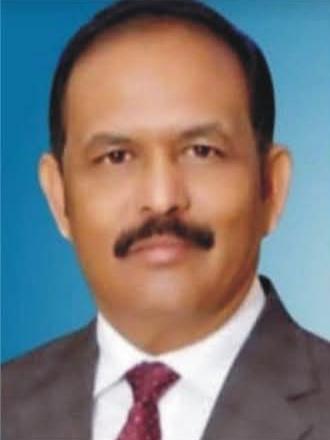The recent conviction of three prominent Kashmiri women leaders—Asiya Andrabi, Fahmeeda Sofi, and Nahida Nasreen—by a National Investig
The Transformative Power of the Sacrament of Reconciliation: An Exploration of the Spiritual Renewal it Bring. By William Gomes

The sacrament of reconciliation, also known as confession or penance, is a vital component of the Catholic faith. According to Church teachings, confession is a sacrament of healing, allowing individuals to experience God's mercy and forgiveness. This article explores the transformative power of the sacrament of reconciliation and the spiritual renewal it offers to the penitent.
The roots of the sacrament of reconciliation lie in the teachings of Jesus Christ, who instructed his disciples to forgive sins (John 20:23). Over time, the Church developed a formal process for confessing sins and granting absolution. Key concepts such as sin, forgiveness, and grace form the theological foundation of the sacrament.
Confession is a means of experiencing God's mercy and forgiveness, healing the broken relationship between God and the sinner. Confessing one's sins to a priest and receiving absolution requires absolute sincerity and a fundamental readiness to accept the forgiveness of the priest.
The sacrament of reconciliation has transformative power, bringing spiritual renewal to the penitent. Confession enables Christians to discover the depth of their own sinfulness and experience the infinite mercy of God in their lives. Personal testimonies and case studies demonstrate the transformative power of the sacrament in the lives of individuals who have experienced spiritual renewal through confession and absolution.
Confession is a sacrament of reconciling the mercy of God. Through confession, sins are forgiven, and the broken communion of man with God and the Church is re-established. Confession is a crucial component of the Christian life, allowing individuals to receive God's forgiveness and be restored to a state of grace.
The sacrament of confession is a means of spiritual growth and renewal. Confession is not only a means of receiving forgiveness for sins but also a way of growing in spiritual maturity and deepening one's relationship with God. A regular examination of conscience is essential for spiritual growth and for developing a deeper understanding of one's own sinfulness.
Sincerity is crucial in confessing one's sins. The sacrament of confession requires an attitude of humility and honesty, in which the penitent is willing to confront the truth about themselves and their actions. True reconciliation with God can only be achieved through sincere confession and true contrition.
The priest plays an essential role in the sacrament of reconciliation. Confessing one's sins to a priest implies a fundamental readiness to accept their forgiveness. Confession is a means of reconciling oneself to the Church and the community of believers. The community of believers also plays a critical role in supporting the penitent through the process of confession and forgiveness.
Common obstacles can prevent individuals from approaching the sacrament of reconciliation, such as feelings of shame, fear or doubt. To overcome these obstacles, it is important for the penitent to approach confession with openness and humility, remembering that the priest is there to offer guidance and support.
In conclusion, the sacrament of reconciliation is a transformative experience that brings spiritual renewal to the penitent. By approaching the sacrament with humility, sincerity and a willingness to confront one's own sinfulness, individuals can experience the transformative power of the sacrament for themselves and strive for a more virtuous life. Confession is a means of experiencing God's mercy and forgiveness, reconciling oneself to the Church and the community of believers, and growing in spiritual maturity and deepening one's relationship with God.
William Gomes is a freelance journalist and human rights activist. Email him at wngomes@proton.me and follow @Wnicholasgomes on Twitter for the latest updates and insights on pressing social issues.
The roots of the sacrament of reconciliation lie in the teachings of Jesus Christ, who instructed his disciples to forgive sins (John 20:23). Over time, the Church developed a formal process for confessing sins and granting absolution. Key concepts such as sin, forgiveness, and grace form the theological foundation of the sacrament.
Confession is a means of experiencing God's mercy and forgiveness, healing the broken relationship between God and the sinner. Confessing one's sins to a priest and receiving absolution requires absolute sincerity and a fundamental readiness to accept the forgiveness of the priest.
The sacrament of reconciliation has transformative power, bringing spiritual renewal to the penitent. Confession enables Christians to discover the depth of their own sinfulness and experience the infinite mercy of God in their lives. Personal testimonies and case studies demonstrate the transformative power of the sacrament in the lives of individuals who have experienced spiritual renewal through confession and absolution.
Confession is a sacrament of reconciling the mercy of God. Through confession, sins are forgiven, and the broken communion of man with God and the Church is re-established. Confession is a crucial component of the Christian life, allowing individuals to receive God's forgiveness and be restored to a state of grace.
The sacrament of confession is a means of spiritual growth and renewal. Confession is not only a means of receiving forgiveness for sins but also a way of growing in spiritual maturity and deepening one's relationship with God. A regular examination of conscience is essential for spiritual growth and for developing a deeper understanding of one's own sinfulness.
Sincerity is crucial in confessing one's sins. The sacrament of confession requires an attitude of humility and honesty, in which the penitent is willing to confront the truth about themselves and their actions. True reconciliation with God can only be achieved through sincere confession and true contrition.
The priest plays an essential role in the sacrament of reconciliation. Confessing one's sins to a priest implies a fundamental readiness to accept their forgiveness. Confession is a means of reconciling oneself to the Church and the community of believers. The community of believers also plays a critical role in supporting the penitent through the process of confession and forgiveness.
Common obstacles can prevent individuals from approaching the sacrament of reconciliation, such as feelings of shame, fear or doubt. To overcome these obstacles, it is important for the penitent to approach confession with openness and humility, remembering that the priest is there to offer guidance and support.
In conclusion, the sacrament of reconciliation is a transformative experience that brings spiritual renewal to the penitent. By approaching the sacrament with humility, sincerity and a willingness to confront one's own sinfulness, individuals can experience the transformative power of the sacrament for themselves and strive for a more virtuous life. Confession is a means of experiencing God's mercy and forgiveness, reconciling oneself to the Church and the community of believers, and growing in spiritual maturity and deepening one's relationship with God.
William Gomes is a freelance journalist and human rights activist. Email him at wngomes@proton.me and follow @Wnicholasgomes on Twitter for the latest updates and insights on pressing social issues.
You May Also Like
Open Doors, an international organization that provides protection to vulnerable Christians around the world, released a World Watch List in 2025,
Accepting the Lord Jesus Christ and following His commandments is a difficult and arduous path. Every step of the way is fraught with suffering, pe

"Trial of Pakistani Christian Nation" By Nazir S Bhatti
On demand of our readers, I have decided to release E-Book version of "Trial of Pakistani Christian Nation" on website of PCP which can also be viewed on website of Pakistan Christian Congress www.pakistanchristiancongress.org . You can read chapter wise by clicking tab on left handside of PDF format of E-Book.








